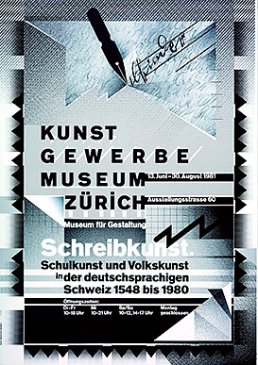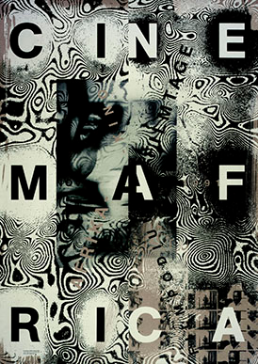The sociopolitical changes triggered in 1968 led to criticism of the consumer society. Advertising for consumer goods, as typified by the International Style, came under fire as its cold, formal, dogmatic aesthetic was questioned.
Wolfgang Weingart

© Wolfgang Weingart
In Switzerland, Wolfgang Weingart (b. 1941), who taught in Basel together with Armin Hofmann, led the opposition to the International Style. Towards the end of the 1960s, Weingart began to call the prevailing rules into question. As computers and phototypesetting had totally revolutionised working methods, graphic designers also had to adopt fundamentally new approaches. This brought greater freedom, shorter lead times and lower costs.
Weingart was quick to grasp the implications. With great spontaneity, energy and humour, he designed posters that appeared complex and chaotic and thus captured the zeitgeist perfectly.
Advocates of an updated tradition

© Ralph Schraivogel
Some designers, including Zurich’s Siegfried Odermatt (1926–2017) and Rosmarie Tissi (b. 1937), did not abandon the old tradition completely. Still influenced by the International Style, they chose instead to adapt it to new ways of working. Less revolutionary than Weingart, Odermatt and Tissi
- created posters that were easier to interpret,
- developed typographic and spatial solutions that were less strict than those of their predecessors,
- enriched the International Style’s vocabulary with their more dynamic and playful compositions
- and paved the way for the new movement that became known as Postmodernism.
Postmodernism is still practised today, for example by Ralph Schraivogel (b. 1960).
Graphic design, and with it the poster, are constantly evolving. New technical possibilities and new products demand new advertising methods and strategies. To fulfil their information and advertising functions, posters must not just strike a chord with contemporary tastes, they must anticipate new tastes and even help to create and shape future trends.
Last modification 07.12.2018
Contact
Swiss National Library
Prints and Drawings Department
Hallwylstrasse 15
3003
Bern
Switzerland
Phone
+41 58 462 89 71





